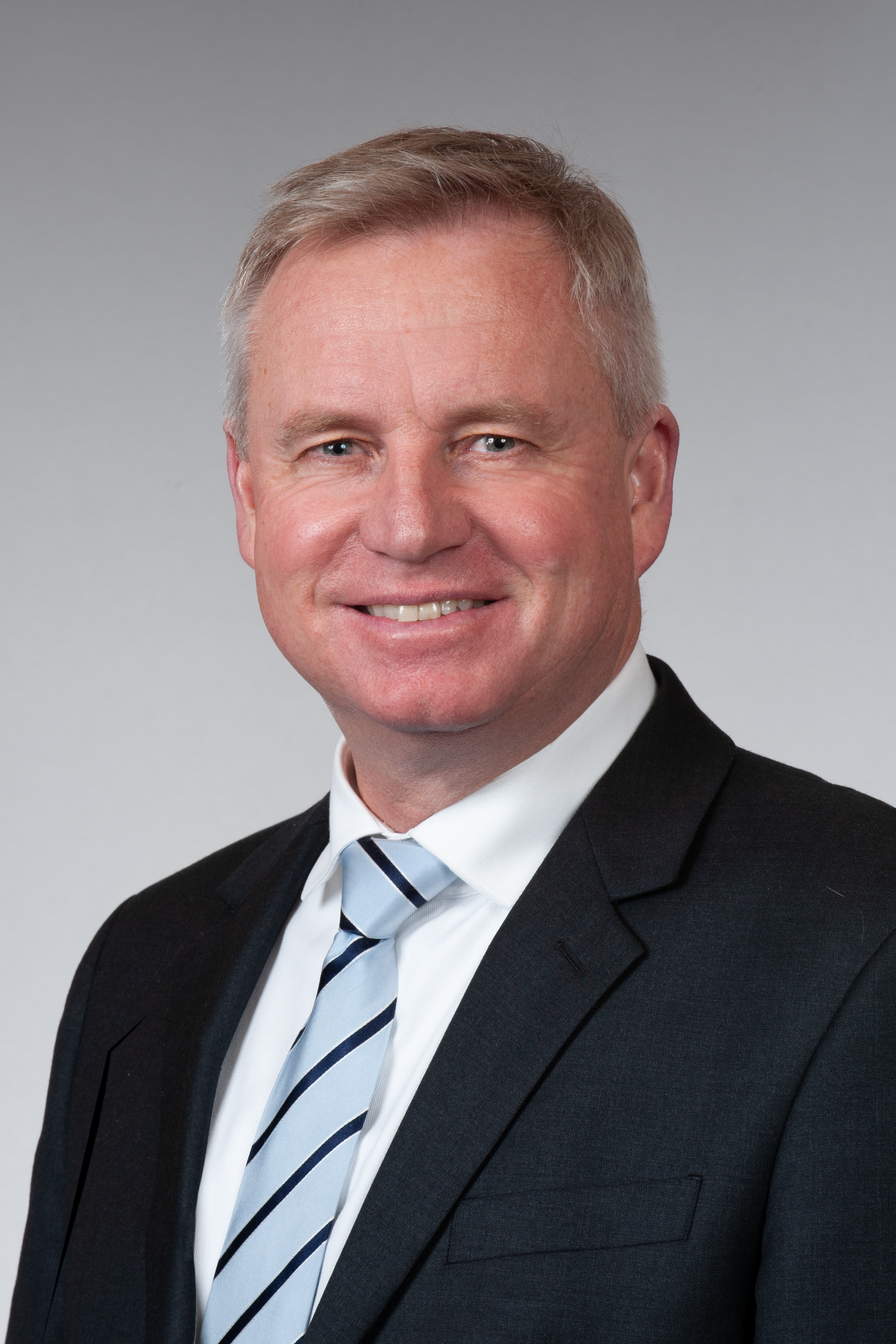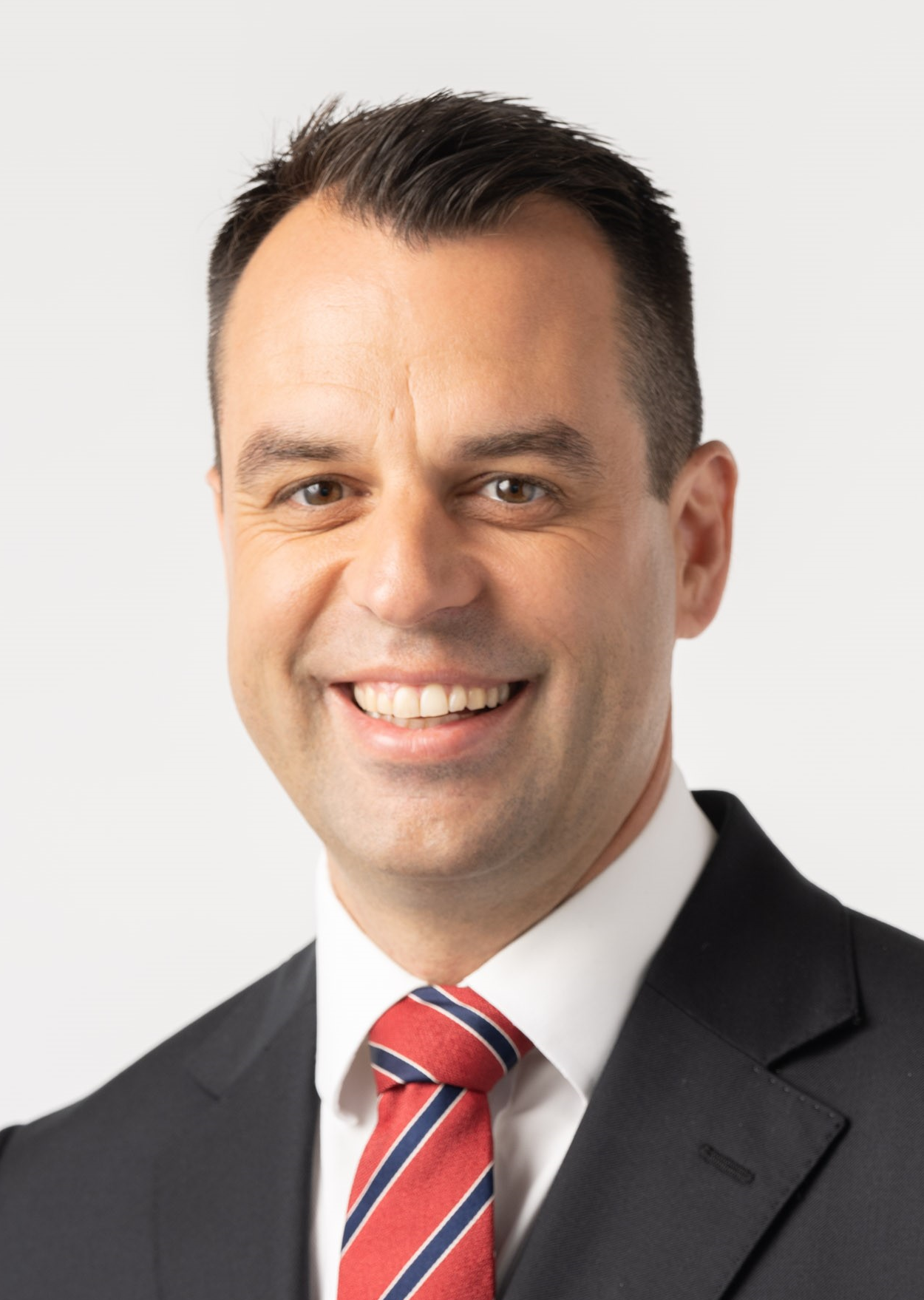Premier and Leader of the Opposition
Premier

Hon Jeremy Rockliff MP
Premier since 2022
Background
The office of Premier has evolved over the years through various precedents and miscellaneous practices and customs, all of which are known as conventions.
Because the Tasmanian political system stems from Westminster tradition no formal recognition is given in the State Constitution Act to the post of Premier. Nonetheless, since 1882 legislation has been in place to provide a special salary to the holder of the position.
Becoming Premier
By convention the political party which has majority support in the House of Assembly (its 'confidence') nominates its leader to be the Premier. This convention did not strictly apply between 1856 and the 1920s; instead the English practice of the era was followed with the Premier often coming from the Legislative Council. This practice changed to the current situation only after the rise of the political parties in the House of Assembly during the early twentieth century.
The majority in the House of Assembly is generally held by the party that holds the greatest number of seats after an election. However there are other circumstances that can exist. In recent times there have been Premiers who have held office with the support of either independent members or a smaller third party. Generally the Premiership will change when a party loses its majority at an election or if the individual loses the support of the party, or a third person or group on whose support they rely; such a change is usually in favour of another member of the same party.
In practice the office of Premier is created by Governor's minute or formal request. This is in effect an agreement between the State Governor and a particular politician. In this way the Governor does not 'create' the position of Premier but invites a Member of Parliament to become the principal adviser to the Monarch's representative in Tasmania (i.e. the Governor).
The newly commissioned Premier, as the chief adviser to the Governor, recommends the appointment of Ministers to particular portfolios or departments.
The Governor does not become involved in the parliamentary processes attached to the maintenance of the majority. Instead the Governor relies on advice from the current Premier.
Roles
The roles of a Premier are varied.
Within Parliament, the Premier provides leadership for the parliamentary majority and answers questions or makes statements on behalf of the Government generally.
Outside Parliament, the Premier advises the Governor on many matters to do with the administration of the State, such as recommending the appointment and removal of Ministers and changes to Cabinet. The Premier also has a role as the public face of government and the State in the media, at public events and on other occasions. In addition the Premier acts as Tasmania's principal representative and spokesperson in the Australian Federal arena, for instance at Premiers' Conferences.
See also
Leader of the Opposition
Hon Josh Willie MP
Leader of the Opposition since 2025
Background
Tasmania's parliamentary system was inherited from the English Westminster system which has seen no outright confrontation to the system of government since the Civil Wars (1642-60). It has been suggested that this may be because there is provision for opposition to the Government of the day already built into the parliamentary system. In fact, the Opposition is so much a part of the structure that it has been known as His or Her Majesty's Loyal Opposition.
The Leader of the Opposition is a person appointed by the main minority party to lead it. The nominee is the leader of the largest minority party within the Parliament, willing to assume office in the event of a change of government either after an election or as a result of a loss of support for the Government in the House of Assembly.
Opposition Leaders in Tasmania
Just six days after Tasmania's original bicameral (two house) Parliament first met on 2 December 1856, the press were referring to 'the Opposition'. During the next year, ex-Premier Thomas Gregson was publicly stating that he was Leader of the Opposition. In a move a decade in advance of the British Parliament the Tasmanian Parliament passed a law in 1927 containing provision for an additional salary payment of £250 for the Leader of the Opposition. However it was not until 4 November 1937 that formal recognition was given to the role of the Leader of the Opposition in the Standing Orders. The Standing Orders give the Leader of the Opposition additional rights, for example the right to exceed the various time limits set for speeches.
The evolution of the position of Leader of the Opposition in Tasmania involves some confusion because political parties as we know them today were not fully formed between 1856 and the 1900s. For example, there were clashes regarding the right of the immediate past Premier to occupy the Opposition Leader's designated chair. Alfred Dobson in 1882 is generally recognised as Tasmania's first party-based Leader of the Opposition.
Roles
The principal role of the Opposition is to present an alternative to the Government of the day. The Leader of the Opposition has a number of roles in our current political system. Within the Parliament they often lead the debate on various Bills and other matters. The Leader is expected to direct the thrust of parliamentary Question Time against the Government and often sets the tone of debate or questioning in the Chamber. However the Leader also represents the Opposition in providing the support of the Opposition for the Government when a unified stance is in the best interests of all, for example in condolence motions or significant formal functions.
Outside Parliament, the Opposition Leader has a number of significant roles to undertake on behalf of the party. These include providing leadership and a viable alternative figure to the Premier; being a prominent critic, and leading public scrutiny of government administration, legislation and decisions; and being the public face of the Opposition at media events, party and social functions.

